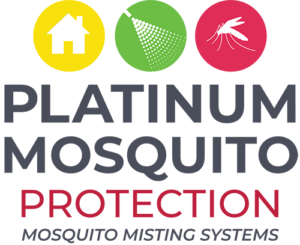
Fighting Zika, malaria, and other mosquito-borne viruses
The Zika virus generated a lot of press this year. Reports of the mosquito-borne virus – which can be passed from a pregnant woman to her fetus, causing a number of birth defects – caused even more alarm when cases began appearing in North America.
Zika is not the only dangerous virus spread by mosquitos, however. The World Health Organization (WHO) reported that over 212 million cases of malaria were diagnosed in 2015. According to the Wilson Center, “The threat of malaria and other vector-borne diseases, including Zika, West Nile, yellow fever, and dengue is so great in scope that it is insurmountable without the active help of tens-or even hundreds-of-thousands of individuals working with scientists, educators, managers, and decision-makers to monitor and eradicate risk.”
A new global fight against mosquito-borne viruses
Now, a new United Nations-backed initiative called the Global Mosquito Alert is bringing together experts from around the world to help track and control these viruses. It is the first global effort to use citizen scientific techniques to tackle this worldwide problem. “The information generated will help mitigate risk and reduce health threats while opening up an opportunity for the general public to contribute their mosquito observations and possible solutions,” according to a UN News Centre report.
The platform will include resources, toolkits, and protocols that others can use. It will also provide a single depository that will hold data and analyses of mosquito populations in various parts of the world.
In a news release, Jacqueline McGlade, Director of Science at the UN Environment Programme (UNEP), said the shared platform will “…allow people on the ground to share their observations and information with a large body of scientists to help them monitor emerging trends in real time and leverage citizen science for the global surveillance and control of disease-carrying mosquitos.”
How does the initiative work?
The Global Mosquito Alert includes several international organizations that are tracking and monitoring mosquito populations in the hopes of developing protocols to help countries combat the spread of mosquito-borne viruses. The organizations include Global Observer Mosquito Habitat Mapper (U.S./International), Invasive Mosquito Project (U.S.), Muggenradar (Netherlands), Mosquito Alert (Spain), ZanzaMapp (Italy), MosquitoWEB (Portugal), and CitizenScience.Asia (Hong Kong/Asia).
The goals:
Promote a better understanding of mosquito species and habitats
One way the initiative will help is by increasing knowledge of local and global populations of mosquitos, including where they are developing and the characteristics of the various species. According to the Wilson Center, “…existing open data from government sources is still limited in both the species diversity and the geographical scope … Enhanced data availability and accuracy will enable the better and faster response.”
Gather data in one place
The initiative will gather all the information together so that it can be easily accessed by anyone. “The platform will pool together the data, knowledge, and experience of existing projects for use by citizen science groups, allowing for more streamlined project implementation and community response at lower cost,” according to the Wilson Center.
Provide tools and components others can use to fight disease
The infrastructure of the Global Mosquito Alert will be scalable and flexible enough that communities can use the tools to combat mosquito-borne viruses according to their needs.
The UN and other organizations are working to combat mosquito-borne viruses around the world. Platinum Mosquito Protection also does its part here in Florida – providing an automatic misting system to help eliminate these pests here at home. For a free onsite consultation, please complete our convenient online form.
Back to Everything You Need To Know To Fight Mosquito-Borne Diseases
